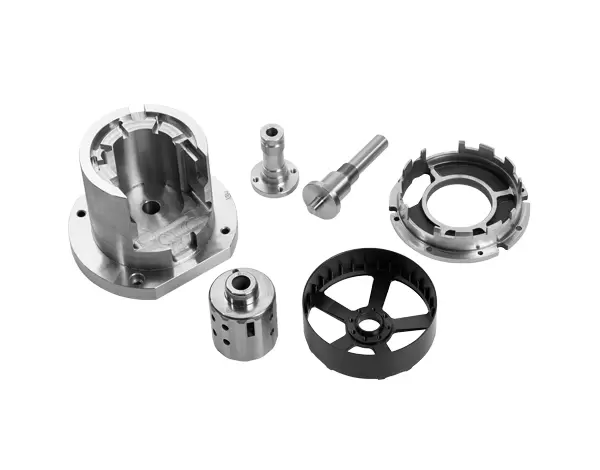In modern manufacturing, precision CNC machining has become a crucial tool for improving product accuracy and production efficiency. Whether it's automotive parts, medical devices, or aerospace equipment, high-precision components require professional CNC machining services. However, with so many machining companies on the market, how can companies choose a reliable, efficient, and trustworthy precision CNC machining company? This article will provide professional guidance from multiple perspectives to help companies make an informed choice.
1. Clarifying Machining Requirements: Product Type and Machining Precision
The first step in selecting a suitable precision CNC machining company is to clarify your machining needs. Different product types have different requirements for machining precision, materials, and processes:
Part Types
Metal parts: Commonly used in machinery manufacturing, automotive, and aerospace
Plastic parts: Commonly used in electronics, medical devices, and consumer goods
Special materials: Such as titanium alloys, aluminum alloys, and high-hardness steels require manufacturers with relevant machining experience
Machining Precision Requirements
Precision CNC machining typically requires tolerances of ±0.01mm or higher. High-precision parts require manufacturers with advanced CNC equipment and a strict quality control system. Once these basic requirements are clarified, companies can select manufacturers based on their specific standards, rather than blindly searching.

2. Investigate the Fabricator's Equipment and Technical Capabilities
Equipment and technical capabilities are key indicators of a precision CNC fabrication plant's reliability. When selecting a CNC fabrication plant, consider the following:
Type and quantity of CNC machine tools
High-precision CNC machining centers, such as five-axis machining centers, enable complex part processing
A combination of turning, milling, grinding, and other equipment to meet diverse processing needs
Technical level and process capabilities
Whether the manufacturer has a professional engineering team capable of providing process optimization recommendations
Ability to process special materials or complex parts
Advanced testing equipment
Precision measuring tools: Coordinate Measuring Machines (CMMs), projectors, and surface roughness gauges
Advanced testing equipment ensures dimensional accuracy and geometric tolerances of machined parts. By conducting an on-site visit or conducting a detailed consultation, you can gain an understanding of the manufacturer's equipment and technical capabilities and intuitively assess their processing capabilities.
3. Assessing Process Quality and Certifications
Process quality is a key indicator in selecting a CNC fabrication plant. High-quality parts not only impact product performance but also a company's brand reputation. The following aspects can be considered as a starting point for the evaluation:
Quality Management System
ISO 9001 quality management system certification is the foundation.
Some high-end manufacturing companies may have certifications such as IATF 16949 (automotive) and ISO 13485 (medical devices).
Process and quality control procedures
Incoming material inspection
Process control
Finished product testing and reporting
Customer case studies and testimonials
Understand the manufacturer's processing capabilities through historical projects.
You can also consult existing customers or peers to learn about the manufacturer's reputation and delivery capabilities.
High-quality manufacturers not only have advanced equipment but also have strict management systems to ensure product quality.
4. Examining Delivery Capabilities and Service Levels
In precision CNC machining, delivery capabilities and service levels directly impact production schedules and costs:
Delivery schedule assurance
On-time delivery capabilities
Ability to process expedited orders
Customer communication and technical support
Availability of a dedicated account manager or engineer to provide technical support
Availability of professional advice on design, process optimization, and material selection
After-sales service
Availability of rework or quality issue resolution mechanisms
Availability of long-term partnerships and customized services
Choosing a manufacturer with stable delivery and excellent service can effectively reduce production risks.
5. Reasonable Price and Cost Control
While price is important, low price shouldn't be the sole criterion. Reasonable precision CNC machining prices should reflect the following factors:
